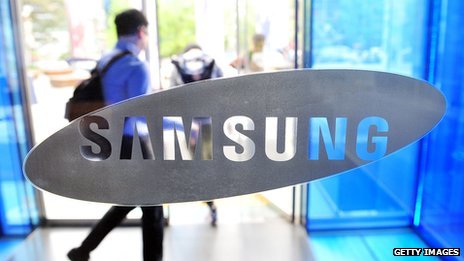Samsung Electronics has forecast a 25% drop in profit for the second quarter due to a slowdown in the smartphone market and a strong Korean currency.
It expects to make an operating profit of 7.2 trillion won ($7.1bn; £4.2bn) in the April-to-June period, down from 9.5 trillion won a year ago.
Its operating profit has now fallen for three straight quarters.
Samsung is the world’s biggest maker of mobile phones and the handset division accounts for the bulk of its profits.
The South Korean firm said it “witnessed a slowdown in the overall smartphone market growth and saw increased competition in the Chinese and some European markets” during the period.
Meanwhile, a stronger Korean currency also hurt Samsung’s earnings during the period.
The Korean won rose more than 11% against the US dollar and nearly 7% against the euro between July 2013 and end of June this year.
A strengthening currency hurts profits of firms such as Samsung – which rely heavily on exports – when they repatriate their foreign earnings.
‘Golden era’
Samsung’s growth in recent years has been powered mainly by its mobile phone division.
The success of its Galaxy range of smartphones, coupled with a growing global demand for such gadgets, saw it displace Nokia as the world’s biggest mobile phone maker in 2012.
However, the pace of growth of the smartphone market has been slowing down and the competition in the sector has also increased, forcing manufacturers to cut costs of their devices in an attempt to attract consumers.
Analysts said that profit margins in the sector are likely to fall even further.
“The golden era of high-end smartphones is clearly over. Those were the handsets that helped firms such as Samsung make healthy profit margins,” Ajay Sunder, a vice president specialising in the telecoms sector with consulting firm Frost & Sullivan, told the BBC.
Over-dependence?
“Now it is all about high-volume and low-margin handsets. And on that front the competition is getting fiercer with each passing day.”
Various other smartphone makers including China’s Xiaomi, Huawei and ZTE have been increasing their market share steadily.
Mr Sunder said that given the slowing growth and increased competition in the smartphone market, Samsung needed to look at boosting its presence in other sectors if it wanted to sustain high growth rates.
“Its over-dependence on the mobile phone division needs to go,” he said.
For its part, Samsung has said it “cautiously expects a more positive outlook in the third quarter”.
Source: BBC


